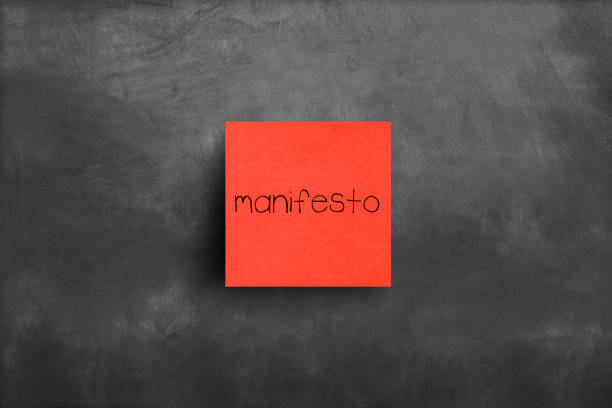An African Filmmaker’s Manifesto

We are all Africans. Every last one of us.
Africa birthed the entire world and humankind has been evolving and re-inventing itself ever since. Our ancestors were the Earth’s first witnesses – the first to walk it, see it, hold its soil in their hands, and tell stories about it.
If the films we watch were anything to go by, few would believe that our history did not begin with slavery, colonialism or plundered resources. And our own local narratives dominated by politicians, scandals and power do not do much to reflect a truer picture of whom we are.
When colonialists extracted and destroyed our artefacts, banned cultural practices and created a system of servitude and extraction, our sense of self was interrupted. And a continent that doesn’t know its history struggles to invent its future. For years, our stories have been told by others – and these stories have become a kind of truth. We must disrupt this by reflecting our own realities – or sit back and allow ourselves to be shaped by others.
Cinema has the power to give citizens a new vision of themselves and what they can be. Cinema is immersive –a film can literally alter one’s impression of the world, and change one’s own idea of their place and role within it.
Film therefore doesn’t not just reflect culture – it has the power to influence and change it.
We believe that Culture is not static – it is constantly evolving.
We, through great, diverse, well made films made by the most talented, committed and visionary of filmmakers will enable us, as Africans, to be finally see ourselves both as we are and as we might become.
We reject the notion that African films must appeal to the basest of African instincts to find the largest audiences and refute the notion that African cinema has to be quickly and crudely made to be successful. We believe African audiences are as discerning and demanding as any, but is in need of financial and policy support to be the best it can.
And to tell our powerful stories well, we must tell them truthfully, owning our successes as well as our failures; our darkness as well as our light.
The best films are intimate observations of people: their worlds, their identities, their circumstances, their challenges, views, imaginings, hopes and victories.
In order to impact and uplift ourselves as human beings, we must support films that reflect multiple aspects of ourselves, including those that generate controversy by challenging societal norms.
Our storytellers must be allowed to conceive, gestate and birth new stories as much as they mirror and recount old ones. We invite honest reflections of all that we were are. In this way we will be challenging old assumptions, unearthing buried truths, and provoking new realities.
We are committed to supporting independent storytellers on the African continent who describe the world as they see it, from their own unique histories, experiences, imaginings and lenses and celebrate that no two perspectives, no two stories or approaches can ever be identical. We must resist with all our might the insistence on Africa having a single story: whether that story originates from western media or conservative African leadership.

We acknowledge the difficulty of the path walked by artists – because one does not choose to be an artist: art chooses you. Our community of committed storytellers are vulnerable and need support in order to tell our stories with courage, clarity and authenticity. We reject the notion that life for an African filmmaker life must be defined only by struggle and that our most gifted voices should have to live from hand to mouth and are commit to building a conducive environment able to support a community of celebrated, thriving filmmakers. We exist to nurture, galvanize and support this diverse community of creators and thinkers in a safe, enabling space where they can create, learn, debate, be inspired, network and flourish.
Each day we elect to renew our commitment to hunt, gather and share creative, educational and financial opportunities for the widest possible diversity of East African filmmakers. We do this not out of duty, but because we too are diverse artists and thinkers seeking a home within this home we are creating.
Ultimately, we firmly believe that true stories well told can change the world. And so we support all efforts to build committed audiences and create successful economic models around the exhibition of African films on the continent and in the world.
So, let us with haste, hope, and vigor make possible, great African films for ourselves, our continent the world and those to come.
An African Filmmaker’s Manifesto
We are all Africans. Every last one of us.
Africa birthed the entire world
and humankind has been evolving and re-inventing itself ever since.
Our ancestors were the Earth’s first witnesses – the first to walk it, see it, hold its soil in their hands, and tell stories about it.
If the international films that we watch were anything to go by, few would see Africa as the original homeplace of humankind. A place of thousands of rich languages and cultures. A place of millions of diverse stories.
Our own local narratives dominated by politicians, scandals and power do not do much to reflect a truer picture of who we are.
How did we get here?
During Trans-Atlantic slavery, 12.5 million Africans were brutally abducted and sold into slavery.
Then at the Berlin Conference in the late 1800’s, European leaders gathered to carve up our continent creating their own borders and boundaries that cut through our communities.
The West grew.
Africa shrunk.
A continent that doesn’t know its history struggles to invent its future.
For years, our stories have been told by others – and these stories have become embedded as Truth.
We must disrupt this by reflecting our own realities – or sit back and allow ourselves to be shaped by others.
As many African filmmakers have said, we must be like the Sankofa bird of Akan mythology, looking backwards as we fly into the future.
Film has the power to shift perspectives. It is immersive, altering our impressions of the world, challenging or confirming ideas about our place within it.
Film therefore, doesn’t just reflect culture – it influences and changes it.
Culture is not static – it is constantly evolving.
Through the most talented, committed and visionary of filmmakers makng great, diverse films, we, as Africans, will finally be able to see ourselves in motion – both as we are and as we might become.
We concur that filmmaking is a craft and agree that the most insightful storytellers are not only deeply rooted in teir own context, but also informed and inspired by the tales of others but reject the notion of unilaterality in storytelling. AIme Cesairre said that “culture is oxygen” and that civilizations that do not learn from one another “atrophy”.
But we also want to be clear that we do not feel the needs to compete with our wealthier neighbours: Lower budgets do not equate to lesser films. We embrace the experimental risk taking possibilities of imperfect cinema that Julio Garcia Espinosa called for – with or without financing.
For we are African: And in the smaller, tighter, more pressure-filled spaces we’ve been forced to occupy, we boil, we burn, we hew, we hope, we transform we become.
We take what we have and through hard work and creativity, turn it into something beautiful and durable.
It is the African Century.
We therefore commit to being a part of a movement that knows our time has come, and is prepared to do whatever it takes to produce better, more powerful stories for ourselves and the world.
To tell our powerful stories well, we must tell them truthfully, owning our successes as well as our failures; our darkness as well as our light.
The best films are intimate observations of people:
Their worlds, identities, circumstances, challenges, views, imaginings, hopes, despairs, failures and triumphs.
In order to impact and uplift ourselves as human beings, we must support a multiplicity of stories that reveal diverse and divergent
aspects of ourselves – including those that generate controversy by challenging societal norms.
As Wole Soyinka said, “there is no real democracy without critique”. Our storytellers must be allowed to conceive, gestate and birth new stories as much as they mirror and recount old ones.
We embrace honest reflections of all that we were are.
In this way we challenge old assumptions, unearth buried truths, and provoke and inspire new realities.
We are independent storytellers who describe the world as we see it, through our own unique lived experiences, imaginings and lenses….and we celebrate that no two perspectives, no two stories or approaches can ever be identical. We must resist with all our might the insistence on Africa having a single story: whether that one-dimensional story originates from western media or conservative African leadership.
We acknowledge the difficulty of the path walked by artists – because one does not choose to be an artist: art chooses you. As a family of committed storytellers we are vulnerable and need support in order to tell our stories with courage, clarity and authenticity. But we will be conscious about who we choose to work with. We want to collaborate only with leaders, funders, and facilitators of filmmaking who are devoted to nurturing and galvanizing talented, driven, eclectic, African voices.
We support all efforts to build committed audiences and create successful and just economic models around the distribution and exhibition of African films on the continent and in the world. Discriminatory global systems that exclude us from contributing to mainstream narratives will eventually suffer the loss of our combined numbers, determination and wealth.
We invite these film partners and stakeholders, on whom we inevitably rely greatly, to create their own manifestoes, with their own clear values and vision.
Our communities leadership nurtures and galvanizes talented, driven, committed, persistent African voices in safe, enabling, spaces. In our world, discriminatory global systems that exclude people of color from mainstream narratives will eventually suffer the loss of our combined numbers, determination and wealth.
And so we declare our independence as African storytellers setting forth into a brand new world that we envisioned and have already built in our minds eye. Ultimately, we firmly believe that true stories well told can change the world.

